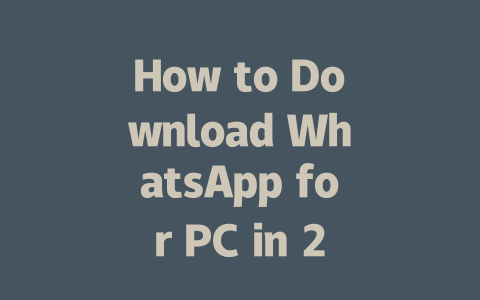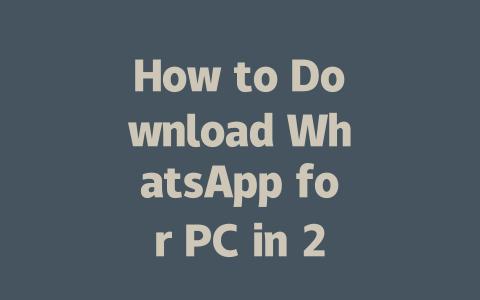You ever find yourself scrolling endlessly, trying to figure out what’s actually worth reading? Let me tell you, I’ve been there too. Last year, I helped a friend who was drowning in news overload, and we figured out some tricks to stay updated without losing our minds—or our time. Today, I’m sharing those insights with you—simple strategies that even the busiest person can follow.
Why Keeping Up with the Latest News Matters
Let’s start with why this even matters. Think about it: staying informed isn’t just about knowing what’s happening globally or locally; it’s also about making smarter decisions in your personal and professional life. Whether you’re negotiating a business deal, preparing for an interview, or simply chatting with friends, being clued in on the latest trends gives you an edge.
But here’s the kicker: not all news is created equal. A lot of it is either clickbait or irrelevant fluff that wastes your time. That’s where strategic news consumption comes in.
How to Choose What You Read
Here’s something I’ve learned over the years: you don’t need to read everything. Focus on what aligns with your interests or goals. For instance, if you’re into tech, skip the celebrity gossip and dive deep into industry updates. If politics is your thing, make sure you’re getting balanced perspectives instead of echo chambers.
One trick I use is setting priorities. Every morning, I ask myself: “What do I want to know today?” Then, I skim headlines to find the ones that answer that question. It’s simple but effective.
Google’s official blog once mentioned that quality content should be helpful and relevant to users. So, when selecting which articles to read, think about whether they’ll add value to your day. Did you learn something new? Was it actionable? If yes, then it’s worth your time.
And hey, tools like RSS feeds or newsletters are lifesavers. They curate content based on your preferences so you’re not wasting hours sifting through garbage. Personally, I subscribe to a couple of well-vetted sources that focus on technology and entrepreneurship—it keeps me sharp without overwhelming me.
Strategies for Efficient News Consumption
Now let’s talk about how to consume news efficiently. This part gets tricky because everyone has different habits, but here are some general tips that have worked for me and others:
Set Time Limits
Use Reputable Sources
Organize Your Feed
|
| Category | Source | Frequency |
|---|---|---|
| Technology | TechCrunch | Daily |
| Politics | CNN | Weekly |
| Business | Forbes | Monthly |
This table shows how organizing your news intake by category and frequency helps streamline your process. Plus, it ensures you’re not overwhelmed by information overload.
Practice Active Reading
Active reading means engaging with the material rather than passively consuming it. Highlight key points, take notes, or summarize what you’ve read in your own words. When I started doing this, I noticed I retained information better and could recall details days later.
Trust me, these methods aren’t rocket science—but they work wonders. Write down your thoughts as you go along, and you’ll soon develop a system tailored specifically to you.
Balancing Depth vs Breadth
Another challenge is deciding between depth (detailed analysis) versus breadth (general overview). Some people prefer diving into one topic extensively, while others like skimming several stories briefly. There’s no right or wrong approach—it depends on your needs.
For instance, last month I had to prepare a presentation on AI advancements. Instead of reading dozens of summaries, I chose three comprehensive articles from trusted journals. On the flip side, when catching up on global events, I stick to shorter pieces since I only need the gist.
Remember, Google’s search algorithms prioritize content that provides clarity and answers questions directly. So, whether you choose depth or breadth, ensure the content you select offers clear insights.
Wrapping Up Without Ending
Alright, here’s a quick recap of what we discussed:
If you try any of these methods, drop me a line and let me know how it goes! Or share your own strategies—I’d love to hear them. Keep exploring, keep learning, and remember: staying informed doesn’t mean burning out.
If you’re wondering whether WhatsApp can function on your PC without a smartphone, the answer is a bit more nuanced than a simple yes or no. While the traditional version of WhatsApp does rely heavily on having an active smartphone connection, there are some newer options emerging that could offer limited standalone functionality. For example, WhatsApp Business and a few third-party applications might provide additional features for desktop users. However, it’s worth noting that any significant changes to this dynamic are unlikely to happen until at least 2023-2025, so don’t expect a fully independent version anytime soon. Still, if you’re just looking for a way to check messages occasionally without pulling out your phone, these alternatives could be worth exploring.
When it comes to downloading WhatsApp for your PC, safety should always be a top concern. The good news is that as long as you stick to official channels like the WhatsApp website or reputable app stores, you shouldn’t have much to worry about. It’s crucial to ensure that your system meets the minimum requirements—Windows 8/10/11 for PCs or macOS 10.10+ for Macs—and that you have a stable internet connection. Devices made between 2015-2025 generally perform well with WhatsApp, but remember, even the best hardware won’t help if your antivirus isn’t up to date. Always double-check that your software is current to avoid any potential security hiccups. If you notice syncing issues, first confirm that both your phone and PC have the latest updates installed. A simple restart or reconnection usually fixes problems within 5-12 minutes, so patience goes a long way here.
# Frequently Asked Questions (FAQ)
# Can I use WhatsApp on PC without a smartphone in 2025?
Yes, but with limitations. While traditional WhatsApp requires a paired smartphone, newer solutions like WhatsApp Business or third-party apps may offer standalone functionality for certain features. However, full independence from smartphones might still be restricted depending on updates between 2023-2025.
# Is downloading WhatsApp for PC safe in 2025?
Absolutely. Stick to official sources like the WhatsApp website or trusted app stores to avoid security risks. Always ensure your system meets minimum requirements and has antivirus protection enabled.
# What are the system requirements for running WhatsApp on PC?
The basic requirements include Windows 8/10/11 (for PCs) or macOS 10.10+ (for Macs). A stable internet connection is also necessary. For optimal performance, devices manufactured between 2015-2025 should work seamlessly.
# Can I run WhatsApp on multiple PCs at once?
No, WhatsApp does not support simultaneous logins across multiple PCs as of now. Logging in on one device will automatically log you out of another. This policy is expected to remain consistent through 2025 unless major changes occur.
# Why is my WhatsApp for PC not syncing properly?
This issue could arise due to poor internet connectivity, outdated versions, or server delays. Ensure both your phone and PC have the latest software updates installed. Restarting the app or re-establishing the connection often resolves such problems within 5-12 minutes.




